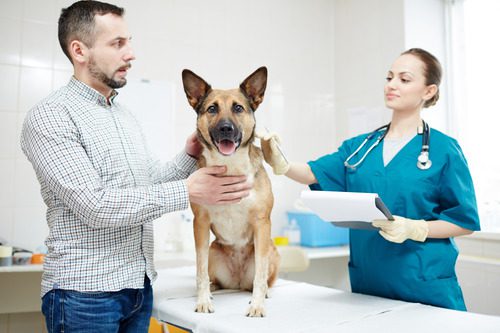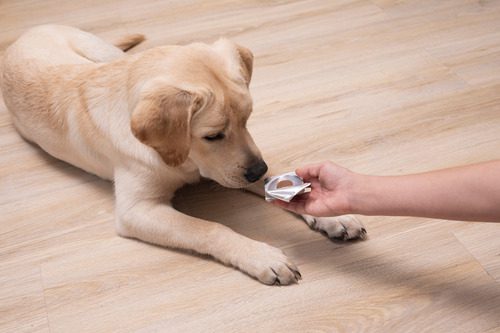Gingivitis in dogs is a common issue that can lead to more serious health problems if it isn’t treated. Today we’re going to talk about what gingivitis in dogs entails, its symptoms and causes, and how laser therapy can offer a new avenue for treatment. At Birch Lake Animal Hospital in White Bear Lake, MN, we’re here to guide you through understanding this condition and how we can help your pet lead a healthier life. If you have concerns or need more details, feel free to reach out to us at (651) 426-2246 to chat or schedule an appointment.

Causes of Gingivitis
Gingivitis is a signal that your dog’s oral health needs attention. The primary cause is plaque buildup, a sticky film of food particles, saliva, and bacteria that adheres to the teeth and gum line. When plaque isn’t removed, it hardens into tartar, which further irritates the gums, leading to inflammation known as gingivitis.
Several factors can increase a dog’s risk of developing gingivitis. Poor dental hygiene is a major one. Just like in humans, regular brushing can significantly reduce plaque buildup. However, many dogs don’t receive daily dental care at home, which allows plaque and tartar to accumulate unchecked.
Diet plays a crucial role too. Soft, sticky foods can adhere to the teeth and contribute to plaque buildup, whereas diets designed to promote dental health can help minimize this risk. Age is another factor; older dogs are more prone to dental diseases. Additionally, certain breeds, especially small breeds and those with crowded teeth, are more susceptible to gum disease.
Genetics also plays a part. Some dogs, regardless of breed, may be genetically predisposed to dental problems. This is why it’s important to know your dog’s health history and discuss it with us at Birch Lake Animal Hospital. Understanding these risk factors can help you proactively improve your dog’s oral health.
The Role of Laser Therapy in Treatment
Laser therapy is revolutionizing the treatment of gingivitis in dogs. This advanced technology uses specific wavelengths of light to target inflamed gum tissue, offering a non-invasive way to reduce inflammation, control pain, and speed up healing. One of the most significant advantages of laser therapy is its ability to treat gingivitis without the need for surgical intervention, making it an excellent option for dogs that may not handle the stress of traditional dental procedures well.
The process works by directing a concentrated beam of light to the affected areas, which stimulates the cells in the gums to heal more quickly. This stimulation enhances blood circulation, encouraging the body’s natural healing processes. Laser therapy also has the added benefit of killing bacteria directly at the gum line, reducing the overall bacterial load and helping to prevent further plaque and tartar buildup.
At Birch Lake Animal Hospital, we utilize laser therapy as part of our comprehensive dental care services. It can be used as a standalone treatment for early-stage gingivitis or together with other dental treatments for more advanced cases. Our veterinary team is trained in the latest laser therapy techniques, ensuring your pet receives the safest, most effective care possible.
The Benefits of Laser Therapy for Gingivitis
Laser therapy offers several benefits over traditional treatments, including less discomfort for your pet, reduced need for anesthesia, and a quicker recovery time. This makes it an appealing option for pet owners looking for a less invasive solution to their dog’s dental issues.
When to Contact Birch Lake Animal Hospital
If you notice any signs of gingivitis in your dog, such as bad breath, red or swollen gums, or difficulty eating, it’s time to give us a call. Early intervention is key to preventing more serious health issues. Contact us at (651) 426-2246 for more information or to make an appointment.
Recent Posts
About Birch Lake Animal Hospital
The staff at Birch Lake Animal Hospital seeks to provide the best possible medical care for our highly-valued patients and clients.





